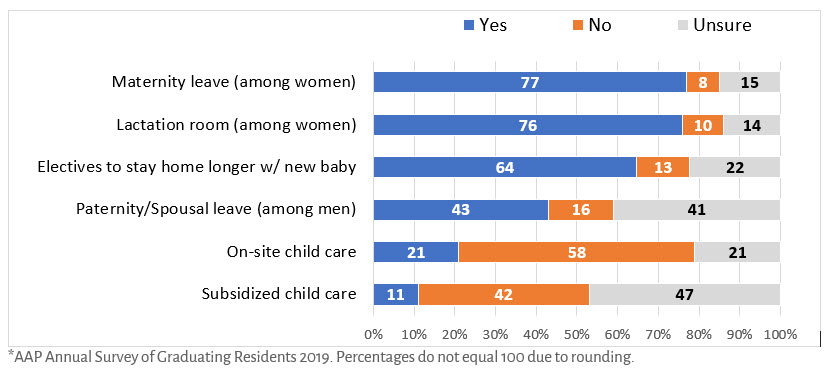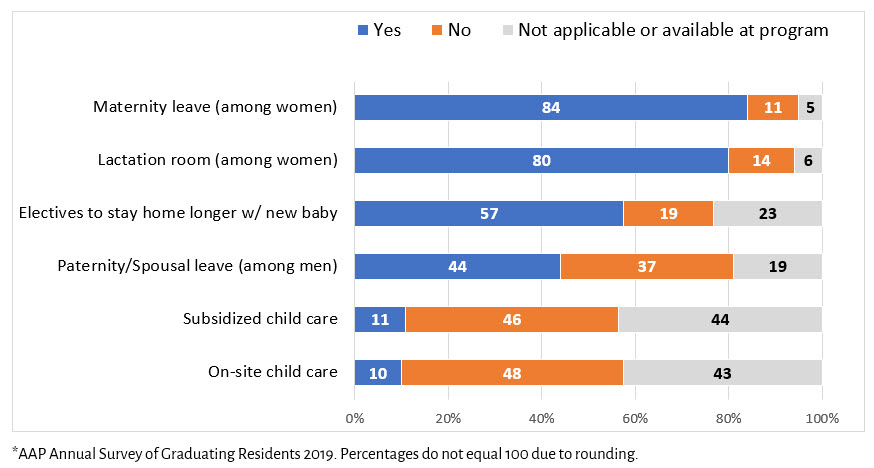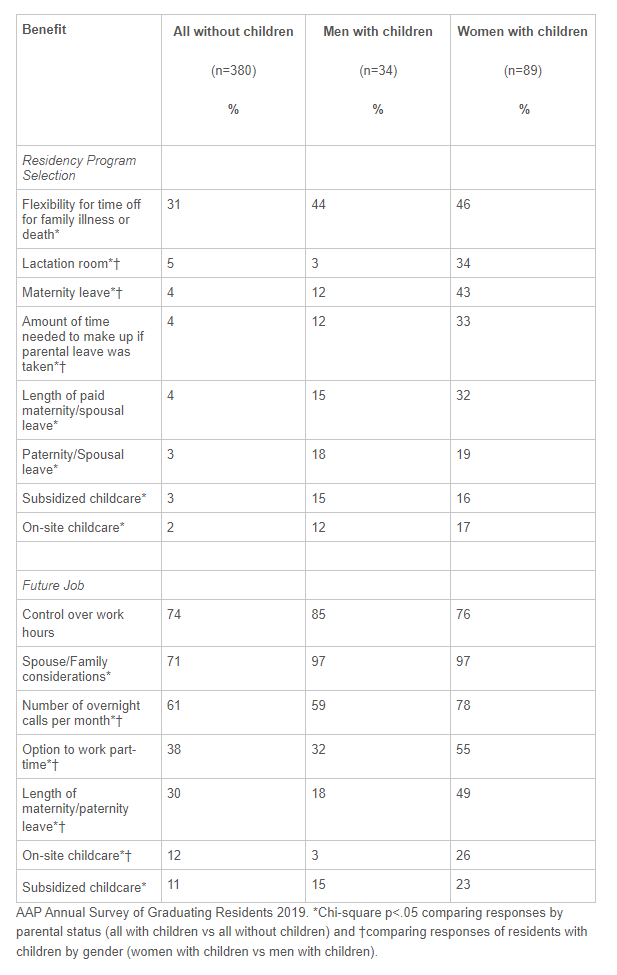Powell W, Frintner MP, Kornfeind K, Haftel H
Accepted for 2020 Pediatric Academic Societies Annual Meeting
Background: Pediatric residents may have multiple roles beyond their training, including parenthood. Little is known about experiences of residents who have a child during training and importance of family-friendly benefits in programs and future jobs.
Objective: Examine experiences of pediatric residents with children during training and importance of family-friendly benefits in residency program and post-graduate job selection.
Methods: A random sample of 1000 residency graduates across all US programs as part of the 2019 AAP Annual Survey of Graduating Residents were surveyed. Respondents were asked about a) own children, b) benefits during residency and c) importance of family-friendly benefits in residency program selection and future jobs. Chi-square tests examined importance of benefit responses by residents with and without children and by gender.
Results: 504 (51%) responded; 74% were female. 123 residents (25%) reported having children; 85% of these residents had or adopted a child during training.
Among all residents, majorities reported their program offered maternity leave benefits (77%), lactation rooms (76%), and electives that allow new parents to stay home longer (64%), Figure 1. Among female residents who birthed or adopted a child during residency, 84% used maternity leave and 80% used lactation rooms (Figure 2).
Among residents who took leave, mean length of maternity or spousal leave was 7 weeks for women and 2 weeks for men. 73% of women and 100% of men reported they were paid for their entire leave. 89% of women and 23% of men reported using some or all their vacation time. 21% of women reported their program petitioned the Board for a missed time waiver.
For residency program selection, less than half of all residents rated the benefits as essential-very important (Table 1). Flexibility for time off was rated as essential-very important by 46% of women with children, 44% of men with children, and 31% of residents without children (p<.01 for residents with vs without children).
For post-graduate job selection, residents with and without children did not differ in importance of control over work hours (79% vs 74%). Spouse/family considerations were rated more often important for residents with children (97%) as compared to residents without children (71%, p<.001). (Table 1)
Conclusion(s): 25% of residents have a child by completion of residency, with most doing so during residency. Parental status plays a role in residency program choice and future job priorities.
Figure 1. Proportion of residents reporting benefits were available at their program (n=503)*

Figure 2. Proportion of residents reporting use of benefits, among residents who birthed or adopted a child during residency (n=94)*

Table 1: Importance of family-friendly benefits in residency program selection and in future job:
Reporting essential-very important (n=503)

Last Updated
10/08/2021
Source
American Academy of Pediatrics